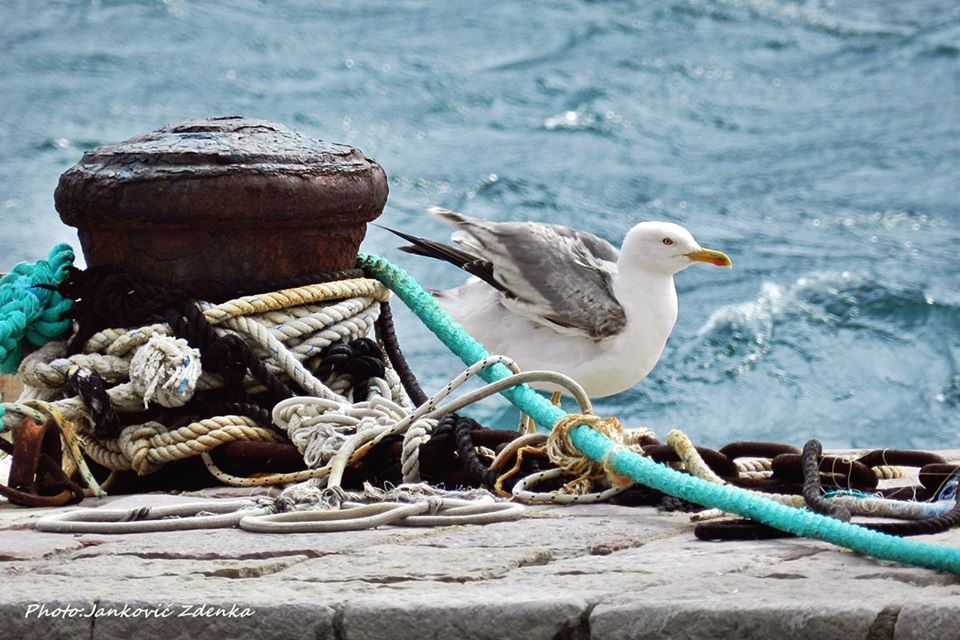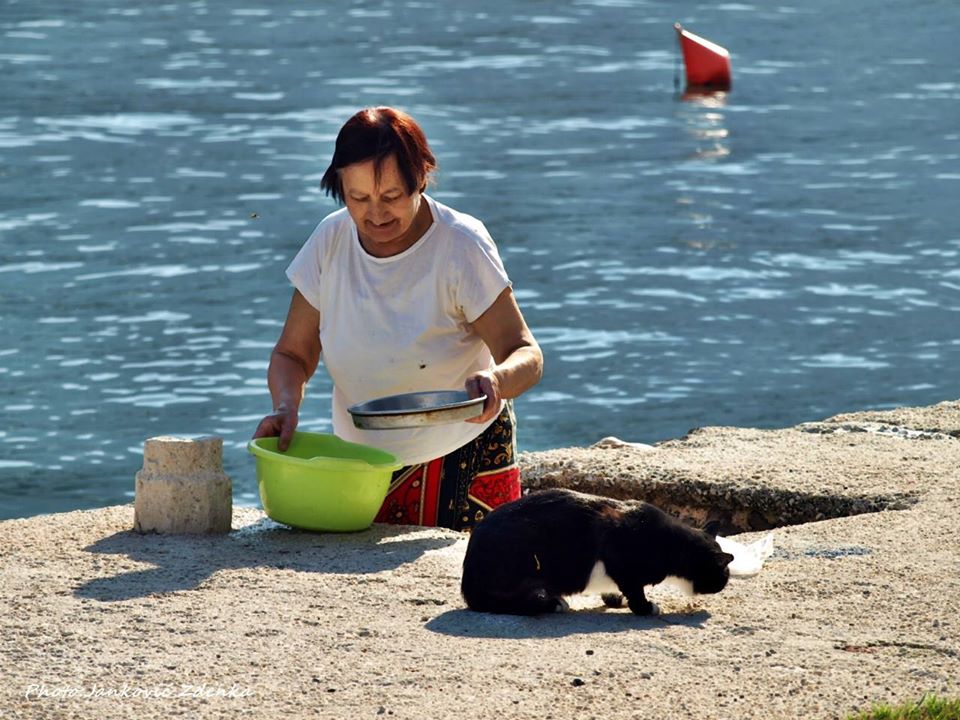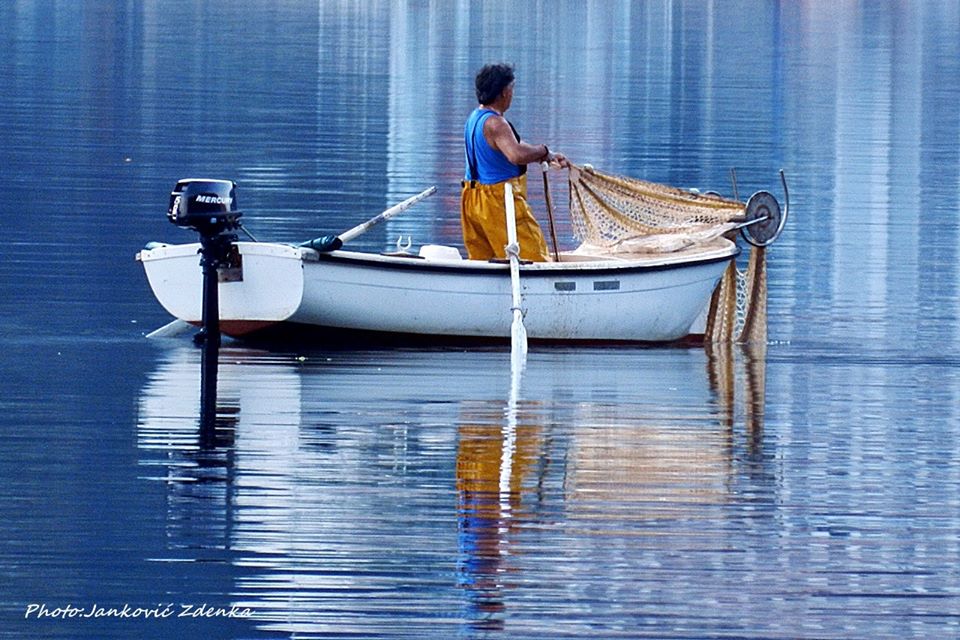July 6, 2020 - Mackerel is swimming 20 meters from the shore in Muo. Shoals of sardines surround the octopus relaxing in the shallows. Hundreds of kilos of mullet just waiting to be caught, while a beautiful sea turtle roams in Stoliv. Are these direct results of the coronavirus impact on the sea ecosystem, or is it a natural cycle conditioned by factors outside the influence of man?
It is still too early for scientists to give reliable answers, but commercial and leisure fishers alike agree - marine life has returned to the Bay of Kotor because there is space to return to. There have been no cruise ships for almost five months, yacht traffic is negligible, and our shores are not primarily parking lots for boats and yachts.
"Something is happening with the ecosystem. Reduced human activity has influenced the living world, not only of the Bay of Kotor but of the entire Adriatic, and it is now returning to activities unhindered by anthropogenic factors. So, wherever man is present, wherever human activity is current, there we have a shelter of the living world and an escape from our actions. This situation, and the peace that has lasted for months - no cruise ships, reduced activities of all vessels at sea, definitely benefit the fish populations and other living organisms in the bay. There is no noise, no artificial movements of water, no lifting of sludge from the bottom. So fish and other marine organisms can live peacefully and expand their habitat where, precisely because of these human activities, they could not exist before, "explains the Director of the Institute of Marine Biology in Kotor, ichthyologist Dr. Aleksandar Joksimović.

Photo by Zdenka Janković
"The conversations I had with the fishermen were sporadic. Coastal fishermen who fish with a rod or from a single line onshore, say that for a long time they had not noticed even those species of fish that are characteristic of the shoal - catfish and other species that live by our shores, and in Mandraći in stone cavities. Now they are slowly returning. At the same time, there is information from commercial fishers that shoals of blue anchovies and sardines have appeared in the bay. We have now entered the spawning period of many species of fish, so it is evident that the young fish are coming to shallow waters. They are now using the littoral part of the Bay of Kotor as their habitat. Therefore, definitely - and based on our preliminary analysis and conversations with fishers - we can conclude that something has happened in the marine ecosystem. We do not know how long it will last, how long this situation will continue. But, based on this research, when we write a report we will be able to say something concrete about the situation. Of course we will need to process the data collected, and compare them with previous data and reports, and for this we will need a long series of data to be able to adequately and scientifically explain some changes and new situations. We will need to use data series from far back into the past, based on the cyclical changes and natural fluctuations in the ecosystem, and the so-called Adriatic ingressions that penetrate the Adriatic Sea every nine to 11 years. The East-Mediterranean saltier and warmer water penetrates our sea, bringing phytoplankton and other nutrients - which makes up a large proportion of the food for both small and large fish. Only based on the analysis of all these circumstances, will we be able to put together a complete picture and finally say whether something has happened and why," explains Joksimović.

Photo by Zdenka Janković
However, we can already conclude from conversations with fishers and local people - the sea is clearer; there are more marine organisms along the coast. Does it mean that a short hiatus is enough for ecologically endangered areas to begin to recover from the effects of anthropogenic activities? The question is whether these observations, especially the detailed scientific analyses and the resulting recommendations of experts from the Institute of Marine Biology, can have a direct impact on decision-making when it comes to sustainable marine and coastal management. The Director of the Institute of Marine Biology, Aleksandar Joksimović, explains:
"Our scientific-research activity should lead to that goal - to give scientific recommendations, i.e., scientific opinions. Unfortunately, their further implementation does not depend on us. We are not an institution that can mandate follow-up on our own advice. Based on scientific data we provide, and our participation in working groups for Mediterranean fisheries, biodiversity protection and Adriatic protection, alongsite those for negotiations with the European Union - all bodies dealing with marine issues within the system should heed our recommendations as a postulate and incorporate them into plans and strategic documents emanating from Montenegro. Our opinions are not based on emotion or supposition; they are the result of many years of experience and scientific work and data exchanges that we have almost every day with similar institutions in the region. It is also the fruit of our participation in numerous international projects aimed at creating common platforms and recommendations for responsible relations and use of the Adriatic and the whole Mediterranean. All this is proof that our data is valid. Our reports have scientific weight and should be incorporated into documents to become a template for our future actions, in order to change our awareness of and attitude towards nature, here specifically towards the bay and our sea."

Photo by Zdenka Janković
Unfortunately, we are witnessing a disregard of many scientific recommendations in the race for short-term economic interests, without realizing that the current treatment of marine and coastal ecosystems is unsustainable and leads to the destruction of these resources both ecologically and economically.
What we can do at the moment is enjoy the sea, which is much less polluted and muddy than in previous years. We can sample more delicious fish because it seems that there is indeed more there than in recent years, and even complete novices will be lucky if they try their hand at fishing.
"The fact is that some species of fish have returned to the bay and no one bothers them. No one prevents them from being closer to the shore in their life cycle. No noise, no sea turbulence, no excessive activity around them. I guess that makes for happy fishermen and good catches," concluded the Director of the Institute of Marine Biology of the University of Montenegro in Kotor, Dr. Aleksandar Joksimović.








